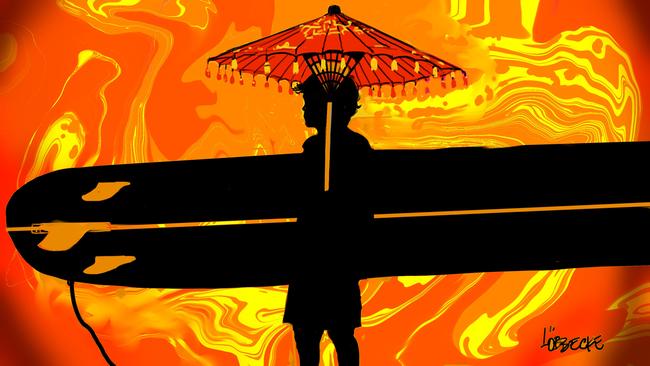Learning Mandarin would help Australians know the Chinese better

It was equally shocking to find that so much distortion had occurred in the local portrait of my homeland. According to the descriptions by some Aussies and media reports, China seems to me an alien country, not the place where I grew up over the past half a century.
One of the major reasons for this disparity in understanding China is that the Chinese perspective, the views of ordinary Chinese citizens, has seldom surfaced in this corner of the world. People indulge themselves in a self-righteous cognitive universe structured by ideologically censored or linguistically filtered information.
At the supposedly prestigious The Australian Strategic Forum, which took place this Monday, the starry list of speakers and panellists fell short of representatives of the Chinese perspective.
Although the audience was enlightened by a league of broad visions and in-depth analyses, the forum was still several stones throw from a qualified China debate, as there was no genuine or faithful presentation of the views and ideas from the target country.
There was no commentator, not a single one, who reflected over the Mandarin language comments about Australia and its relationship with China that had appeared in amazingly large quantity in Chinese media, or on websites and social media. Either the Aussies don’t read them or they just don’t like them.
READ MORE: Scott Morrison backs Hastie, Paterson | Steve Bannon warns of economic warfare with China | Paul Keating — Australia left exposed to China rise
But these comments represent the Chinese perspective, in one of many forms. Neglect of these discussions equals a self-imposed segregation from what really happens in the country and among the people. Truth hurts very often, but truth makes people stand up and march forward.
If an Aussie reads Mandarin comments from Chinese journalists, scholars, businessmen and in most cases ordinary Chinese citizens, he or she will be astounded by the overwhelming support of the Chinese people for the government’s decision to not permit Australian members of parliament Andrew Hastie and James Paterson to visit China, as they had tossed rounds of insult and pressure and showed no respect for the nation of which they are knocking at the door.
To make it less barbaric, I wonder how an Aussie would react to someone who called you a “jerk” and then said he was going to teach you how to cook noodles in your house as he believes only he knows the right recipe.
People in China would laugh out loud if they were told the Australians think the two MPs were rejected because they have different views, and the Chinese government cannot stand criticism.
Talk with a notoriously know-everything Beijing taxi driver. Shoot the wolf, he may say, quoting lyrics from a Korean War era song, as many people already did in their comment entries.
Failure to grasp and understand the Chinese perspective makes many Australians complacent about Australia’s superiority of wealth, culture and system over China. China must be wrong on many issues, particularly on political superstructure and ideological values, no matter how much progress has been made in economic transformation, poverty reduction, social coherence, cultural enrichment and international contribution, which benefit many other countries, including Australia.
Absence of a Chinese perspective in any debate on China deprives Australians of adequate knowledge of how the Chinese system works, let alone opportunities to demystify the Communist Party of China and appreciate the many humane, rational, intelligent and, most importantly, democratic features of the Chinese political establishment.
It is cynical that in a country boasting freedom of speech, different views from another nation are constantly and intentionally obliterated. Understanding truth succumbs to being politically right. A people said to be audacious and adventurous like kangaroos are scared of stepping out of the comfort zone of ideas and thinking. Chinese netizens now look at this continent and wonder where has the friendly, creative, inspirational, open-minded and independent Australia gone. The country that contributed Wi-Fi and APEC seems to be losing its charm and recoiling into a cocoon woven by someone else. “A proud deputy-sheriff? Ha ha.”
If an Aussie really cares about the country’s largest trading partner, believes in the basics of economics and social science, cherishes the fundamentals of human rights, respects mother nature and humanity, plans a good future for their children, please make an effort to know the Chinese perspective. To start with, study Mandarin.
Wang Xining is charge d’affaires at the embassy of China in Canberra.



Over the past six months since I assumed my post in Canberra it has been shocking to learn that so much attention has been fixed on China by fellow Australians.